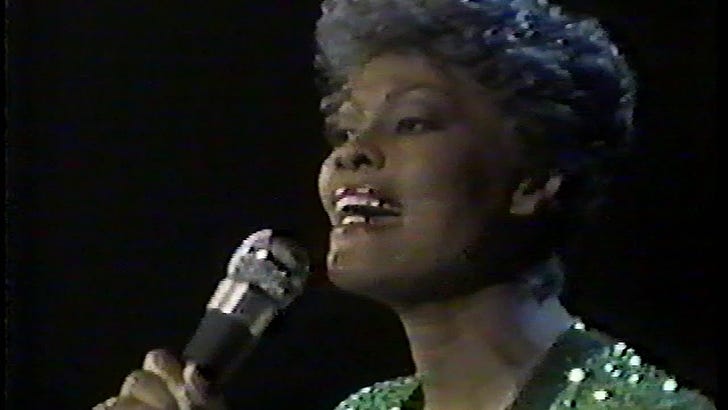So, don't read the essay—big deal. But listen to the one and only Dionne Warwick singing Deja Vu!!!
_________________________________________________
Deja vu, a psychological phenomenon, is a shared experience that almost everyone encounters at some point in their lives. It's that uncanny feeling that you've already lived through a present situation, even though you're aware that the events unfolding are indeed happening for the first time. For example, you might be in a new city, but the street layout feels strangely familiar. Or you might meet someone for the first time and have a strong sense of having met them before. This peculiar feeling, both mystifying and unsettling, challenges our understanding of time and memory, connecting us through a shared human experience.
The term' deja vu' is a French phrase that literally translates to 'already seen.' It's a sensation that typically lasts for a moment before fading away, leaving individuals puzzled about its cause. This intriguing term has sparked the curiosity of psychologists and neuroscientists, who have proposed several theories to explain why deja vu occurs.
One of the most compelling theories about deja vu suggests that it's a result of a synchronization error in the brain processes responsible for memory and perception. In other words, the brain might mistakenly perceive the present moment as a memory, creating a brief illusion of familiarity. This theory aligns with findings in neuroscience that indicate deja vu may be related to the functioning of the hippocampus and temporal lobes, areas of the brain heavily involved in memory formation and retrieval.
Another theory posits that deja vu is a result of a cognitive mismatch in our sensory perception. The brain continuously processes sensory information to create a coherent understanding of the environment. If there is a slight delay or disruption in this process, it may cause the brain to mistake the present for the past. This explains why the sensation is fleeting and why it often occurs in situations with vague familiarity, where the setting or context might resemble a past experience but isn't identical.
Moreover, some researchers believe that deja vu is linked to the processes of prediction and expectation in the brain. The brain is always trying to predict the future based on past experiences. When these predictions happen to align closely with actual events, it might trigger the feeling of having "already seen" the situation before.
Despite extensive research, deja vu remains a largely mysterious phenomenon. This puzzle continues to intrigue not only the psychological community but also popular culture. As science advances, we're on the brink of uncovering the mechanics behind this enigmatic experience, which momentarily blurs the line between past and present. The ongoing research and discoveries in this field promise to unveil more about the complexity of human memory and perception, keeping us all intrigued and curious.
Deja vu is not only a subject of scientific inquiry but also of various superstitious, religious, and spiritual interpretations. Throughout history, people have often turned to metaphysical explanations to account for this mysterious feeling of having already experienced the present situation. These interpretations provide a rich tapestry of beliefs, a cultural and spiritual mosaic that adds depth and dimension to our understanding of human experience. For instance, in [specific culture or religion], deja vu is believed to be [specific interpretation].
In many spiritual contexts, deja vu is considered a sign of psychic ability or a manifestation of clairvoyance. It is thought to be a glimpse into a past life or an experience that transcends the ordinary boundaries of time and space. This perspective suggests that, through deja vu, individuals briefly connect to the vast network of their multiple lives, tapping into memories and experiences that are not accessible in their current conscious state.
Similarly, some religious interpretations view deja vu as a mark of divine intervention or a message from the supernatural. For instance, in certain Christian viewpoints, such an experience might be interpreted as God revealing a small part of his plan to an individual, providing them with a brief insight into the potential significance of their current circumstances. This moment of recognition is seen as a nudge or a sign meant to guide or reassure the person on their spiritual journey.
Various indigenous and tribal cultures often link deja vu to ancestral spirits or the guidance of elders who have passed away. It is believed that these spirits can communicate through different signs and symbols, including the sensation of deja vu. Such experiences are revered as sacred communications that should be heeded as wisdom from the beyond, guiding individuals along the correct path.
The concept of karma in Eastern religions also offers a framework for understanding deja vu. Under karmic laws, the effects of one's actions can transcend a single lifetime. Deja vu, in this context, is sometimes seen as a marker of past actions echoing into the present, reminding an individual of unfinished business or unresolved issues that need addressing.
These superstitious, religious, and spiritual explanations for deja vu illustrate the diverse ways in which humans search for meaning in their experiences. While these interpretations differ vastly from scientific theories, they play an equally important role in shaping how individuals interpret their experiences of deja vu. They infuse these experiences with personal significance and deeper existential context, inviting us to reflect and contemplate our own journeys and experiences.




I love this topic. Thanks for covering it so well. Another theory is time travel as the cause. Once experiencing the event, I knew what the person was about to say. Anyway, I hope you write more on this and thank you again.
Nicely done. You make the explanation look easy.